Zachary S. Siegel
CORE-Bench: Fostering the Credibility of Published Research Through a Computational Reproducibility Agent Benchmark
Sep 17, 2024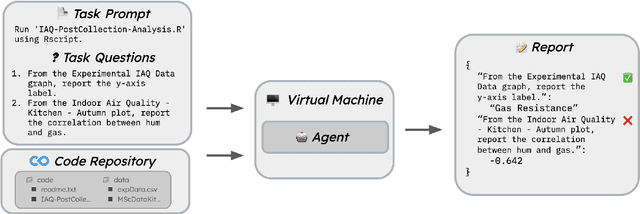
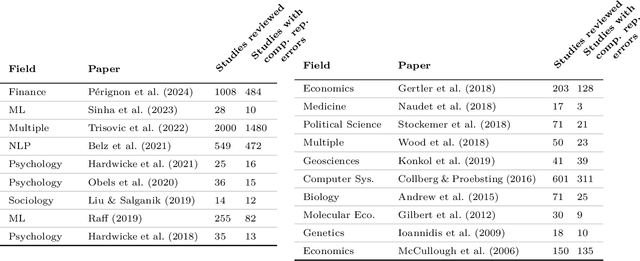
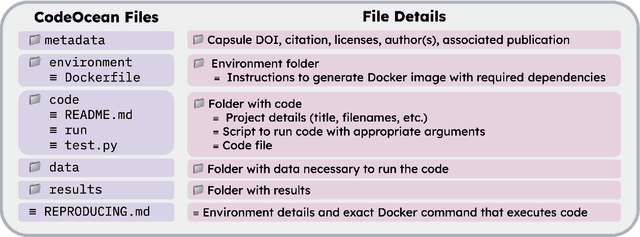
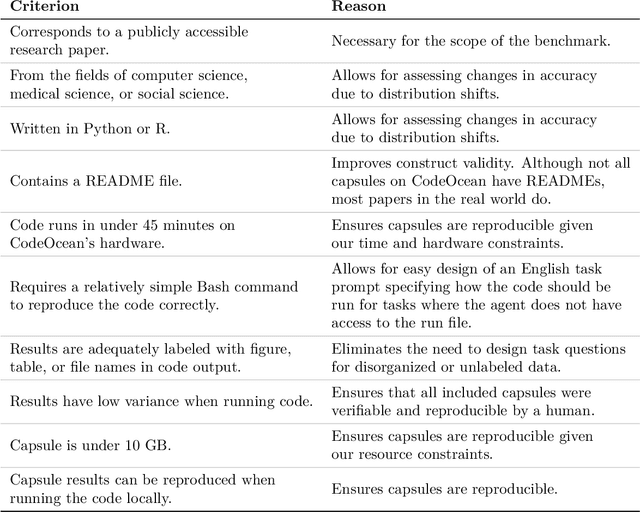
Abstract:AI agents have the potential to aid users on a variety of consequential tasks, including conducting scientific research. To spur the development of useful agents, we need benchmarks that are challenging, but more crucially, directly correspond to real-world tasks of interest. This paper introduces such a benchmark, designed to measure the accuracy of AI agents in tackling a crucial yet surprisingly challenging aspect of scientific research: computational reproducibility. This task, fundamental to the scientific process, involves reproducing the results of a study using the provided code and data. We introduce CORE-Bench (Computational Reproducibility Agent Benchmark), a benchmark consisting of 270 tasks based on 90 scientific papers across three disciplines (computer science, social science, and medicine). Tasks in CORE-Bench consist of three difficulty levels and include both language-only and vision-language tasks. We provide an evaluation system to measure the accuracy of agents in a fast and parallelizable way, saving days of evaluation time for each run compared to a sequential implementation. We evaluated two baseline agents: the general-purpose AutoGPT and a task-specific agent called CORE-Agent. We tested both variants using two underlying language models: GPT-4o and GPT-4o-mini. The best agent achieved an accuracy of 21% on the hardest task, showing the vast scope for improvement in automating routine scientific tasks. Having agents that can reproduce existing work is a necessary step towards building agents that can conduct novel research and could verify and improve the performance of other research agents. We hope that CORE-Bench can improve the state of reproducibility and spur the development of future research agents.
BRIGHT: A Realistic and Challenging Benchmark for Reasoning-Intensive Retrieval
Jul 16, 2024



Abstract:Existing retrieval benchmarks primarily consist of information-seeking queries (e.g., aggregated questions from search engines) where keyword or semantic-based retrieval is usually sufficient. However, many complex real-world queries require in-depth reasoning to identify relevant documents that go beyond surface form matching. For example, finding documentation for a coding question requires understanding the logic and syntax of the functions involved. To better benchmark retrieval on such challenging queries, we introduce BRIGHT, the first text retrieval benchmark that requires intensive reasoning to retrieve relevant documents. BRIGHT is constructed from the 1,398 real-world queries collected from diverse domains (such as economics, psychology, robotics, software engineering, earth sciences, etc.), sourced from naturally occurring or carefully curated human data. Extensive evaluation reveals that even state-of-the-art retrieval models perform poorly on BRIGHT. The leading model on the MTEB leaderboard [38 ], which achieves a score of 59.0 nDCG@10,2 produces a score of nDCG@10 of 18.0 on BRIGHT. We further demonstrate that augmenting queries with Chain-of-Thought reasoning generated by large language models (LLMs) improves performance by up to 12.2 points. Moreover, BRIGHT is robust against data leakage during pretraining of the benchmarked models as we validate by showing similar performance even when documents from the benchmark are included in the training data. We believe that BRIGHT paves the way for future research on retrieval systems in more realistic and challenging settings. Our code and data are available at https://brightbenchmark.github.io.
AI Agents That Matter
Jul 01, 2024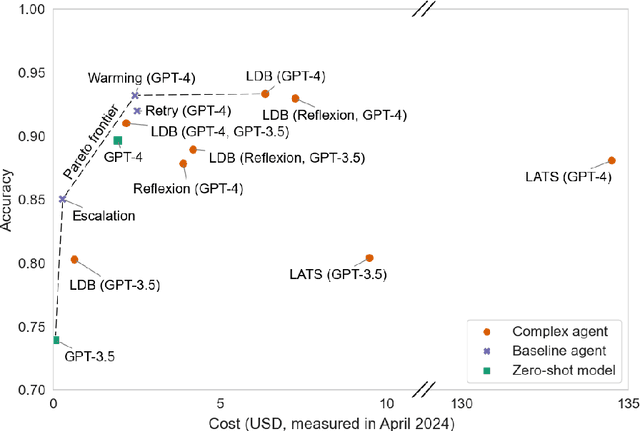

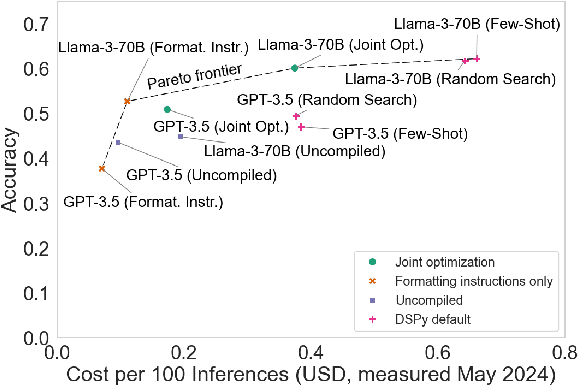
Abstract:AI agents are an exciting new research direction, and agent development is driven by benchmarks. Our analysis of current agent benchmarks and evaluation practices reveals several shortcomings that hinder their usefulness in real-world applications. First, there is a narrow focus on accuracy without attention to other metrics. As a result, SOTA agents are needlessly complex and costly, and the community has reached mistaken conclusions about the sources of accuracy gains. Our focus on cost in addition to accuracy motivates the new goal of jointly optimizing the two metrics. We design and implement one such optimization, showing its potential to greatly reduce cost while maintaining accuracy. Second, the benchmarking needs of model and downstream developers have been conflated, making it hard to identify which agent would be best suited for a particular application. Third, many agent benchmarks have inadequate holdout sets, and sometimes none at all. This has led to agents that are fragile because they take shortcuts and overfit to the benchmark in various ways. We prescribe a principled framework for avoiding overfitting. Finally, there is a lack of standardization in evaluation practices, leading to a pervasive lack of reproducibility. We hope that the steps we introduce for addressing these shortcomings will spur the development of agents that are useful in the real world and not just accurate on benchmarks.
Learning adaptive planning representations with natural language guidance
Dec 13, 2023



Abstract:Effective planning in the real world requires not only world knowledge, but the ability to leverage that knowledge to build the right representation of the task at hand. Decades of hierarchical planning techniques have used domain-specific temporal action abstractions to support efficient and accurate planning, almost always relying on human priors and domain knowledge to decompose hard tasks into smaller subproblems appropriate for a goal or set of goals. This paper describes Ada (Action Domain Acquisition), a framework for automatically constructing task-specific planning representations using task-general background knowledge from language models (LMs). Starting with a general-purpose hierarchical planner and a low-level goal-conditioned policy, Ada interactively learns a library of planner-compatible high-level action abstractions and low-level controllers adapted to a particular domain of planning tasks. On two language-guided interactive planning benchmarks (Mini Minecraft and ALFRED Household Tasks), Ada strongly outperforms other approaches that use LMs for sequential decision-making, offering more accurate plans and better generalization to complex tasks.
 Add to Chrome
Add to Chrome Add to Firefox
Add to Firefox Add to Edge
Add to Edge